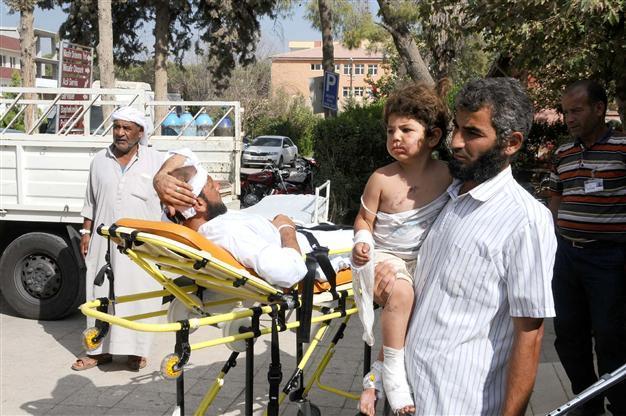Syrian doctors, nurses to treat Syrian patients in Turkey
ANKARA

DHA Photo
The Turkish Health Ministry is working on a plan to allow Syrian doctors and nurses in the country to treat Syrian refugees, Minister Mehmet Müezzinoğlu has said.
“A family health system will be founded consisting of Syrian doctors and nurses,” Müezzinoğlu said on Sept. 16 during a session at the semi-official Anadolu Agency, adding that Turkish doctors would be included in the system.
Syrians in Turkey, whose numbers have already exceeded 1.38 million, will then apply to the body for health needs, he said, adding that the move aims to ease the burden on Turkish health workers, while also making use of idle capacity.
Müezzinoglu said about 250,000 refugees were living in camps, especially in Gaziantep, Kilis, and Hatay, near the Syrian border, and stressed that refugees would not be allowed to choose where they would receive medical care.
“With the new software system of the Interior Ministry, Syrian refugees will not be able to use health services outside the provinces in which they live,” he said.
Müezzinoğlu also said some 120,000 Syrian children in Turkey had received vaccines against various illnesses.
Some 60,000 Syrian children have been born in Turkey since the start of Syria’s civil war. The first Syrian refugees began to cross into Turkey in April 2011.
Caring for refugees has cost the Turkish government more than $3 billion to date, according to official figures. According to the United Nations, about 9.3 million people in Syria need help and 2.5 million have become refugees.
Foreign doctors have been a recent issue in Turkey, with Müezzinoğlu previously saying the country was considering employing foreign doctors in order to fill vacancies in public hospitals, with Greek professionals being one of their main targets.
In late July 2014, the minister said Turkey needed 20,000 doctors who are specialists and 10,000 general practitioners. However, this call has not received much attention from doctors from developed nations mainly due to the language barrier, he said on Sept. 17.
Müezzinoğlu also said Turkey was currently waiting for Israeli permission to bring more wounded Palestinians to Turkey for treatment.
A deal was inked two months ago to bring 200 to 250 wounded Palestinians to Turkey, but only 98 or 99 have come so far, he said.
“Some of these people have lost feet, some have open wounds, some carry a canister with their head. We have been struggling for a week to bring over 50 injured people, but Tthe process for even 50 wounded people takes weeks,” he added.
